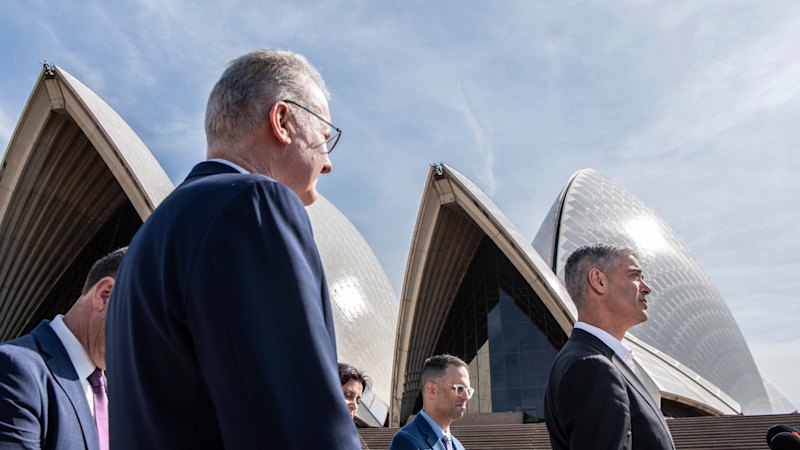
A significant funding controversy has emerged surrounding the iconic Sculpture by the Sea, which faces a $200,000 shortfall. As the event seeks corporate and public donations, Australia’s state and federal arts ministers are attending a pivotal summit aimed at supporting the beleaguered arts sector.
During this summit, held at the Sydney Opera House, Federal Arts Minister Tony Burke acknowledged the severe challenges facing the arts community, describing it as being “smashed” by the current economic conditions. Despite the event’s popularity, Burke stated that federal funding for the Bondi to Tamarama walk would not be available, citing concerns over artists not being compensated for their work.
Sculpture by the Sea has raised $120,000 to date but warns it is “headed for a financial cliff.” Earlier this year, the event had to cancel its Cottesloe exhibition in Perth due to budget constraints. The last federal funding from Creative Australia for the Bondi event occurred in 2023.
When questioned about the potential for federal support, Burke referred to the principle that artists should not be expected to work for free. He noted, “For too long, artists have been expected to work for free as though their life’s work was a hobby and not a career.” Burke’s comments prompted a response from David Handley, the founder of Sculpture by the Sea.
Handley clarified that while artists do pay a $50 entry fee, each participating artist is guaranteed a minimum income of $3,000. He emphasized that this safety net covers the costs for the majority of artists, stating, “Artists who exhibit in Sculpture by the Sea in Sydney and Perth collectively earn $2 million to $3 million from the exhibitions in the form of artist subsidies, awards, and sculpture sales.”
Burke’s remarks came prior to the opening of the historic arts tax summit, which included ministers from New South Wales, Victoria, South Australia, and Western Australia. While ministers arrived without specific proposals, Burke suggested that tax breaks could be revisited when the national cultural policy, Revive, undergoes review in 2024.
“There are many parts of the arts sector that are very much struggling,” Burke said, adding that substantial reforms require thorough groundwork. He indicated that meaningful changes to the tax system must be significant enough to provide lasting support.
One of the key proposals emerging from the summit, based on 307 submissions, includes making government art prizes tax-free. John Graham, the NSW Arts Minister, noted that this would ensure that winners of prestigious awards like the Archibald Prize are not taxed more than winners of lottery bets.
Supporters of the arts sector, including Elaine Chia, Chief Executive of the Naomi Milgrom Foundation, called for reforms that address the demand side of the arts. She pointed to successful initiatives in Canada, where general practitioners can prescribe free museum tickets for mental health, and young adults receive vouchers redeemable for arts activities.
Artist Ben Quilty highlighted the closure or restructuring of six arts schools in the last twelve years, underlining the government’s shifting priorities. He expressed concern over the precarious state of the arts sector, stating, “If we get one tenth of the subsidies Woodside is given, we’d be in a better position.”
Executive Director of the Sydney Theatre Company, Anne Dunn, described the current situation as a “tipping point,” with many creatives leaving Sydney and the industry altogether. She remarked on the shrinking size of theatre casts, attributing this to financial constraints that hinder production capabilities.
A joint communiqué issued at the conclusion of the summit did not commit to any specific reforms but reiterated that government funding alone cannot meet the rising costs and challenges within the arts sector. Ministers acknowledged the potential of tax reform, stating, “Annual funding comes and goes with budget cycles, but structural changes to our tax system could boost culture for generations.”
As the arts community grapples with these pressing issues, the outcome of the summit could shape the future of cultural funding and support in Australia.






